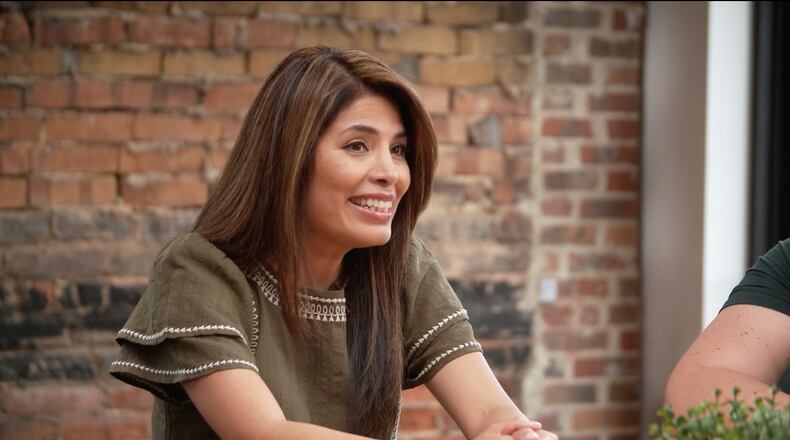Public health officials, elected leaders and even celebrities have encouraged people to take the COVID-19 vaccine to protect those around them since it rolled out.
But there’s another trustworthy group that “always knows best” and whose advice people usually rely on — moms.
Gwinnett County is urging its residents to “Listen to Gwinnett Moms” for vaccine advice. County officials have spent about $500,000 on a vaccine campaign that features mothers — producing videos for social media, placing billboards and booking TV ads with the faces of diverse moms who work and live in the county.
“If we want to stop the spread of COVID-19, you need to get vaccinated,” said Silvia King, a mom who participated in a videoed vaccine roundtable hosted by the county. “I think a lot of people want their life back, going back to the normal activities... We want the schools open, and the kids want to go back to see their friends and teachers.”
King gave birth to her daughter, Ivana, only a few months before the pandemic swept the nation. She returned to her Gwinnett job from maternity leave for only one month until she had to juggle working from home and raising a newborn.
Initially hesitant to take the vaccine, the Forsyth mom consulted with her doctor and other family members. She said she took the shot “to protect myself, to protect my loved ones and to protect the communities.”
The county kicked off the campaign in October 2020 under the leadership of Charlotte Nash, who formerly chaired the county’s Board of Commissioners before retiring. It started by encouraging residents to wear masks, social distance and wash their hands.
As vaccines rolled out, the campaign switched in March this year to moms sharing their personal vaccine stories. The county hopes their stories touch those who are on the fence about taking the vaccine, said Nicole Love Hendrickson, current chairwoman of the county’s Board of Commissioners.
“I got my vaccine earlier this year, and I would not ask my community to do anything that I was not willing to do,” Hendrickson said.
People tend not to trust government officials, Hendrickson said. She shared her own story for Listen to Gwinnett Moms, hoping to appeal to people as the mother of a 7-year-old boy rather than as an elected official.
“I don’t want to look back on this 30 years from now and say that I didn’t do all that I could,” Hendrickson said. “I think (the campaign) is a great model for how other counties can get behind this, because it’s addressing that hesitancy.”
Audrey Arona, district health director of the Gwinnett, Newton, and Rockdale County Health Departments, called on the public to get the shot in a video for the campaign. She too spoke as a mother, mentioning her adult children and their decision to take it.
The campaign’s message is still as important as when vaccines first rolled out, Arona said. COVID-19 cases are climbing in Gwinnett County and Georgia, she said, with 98% of new cases coming from unvaccinated people.
The vaccine is currently believed to be effective against COVID-19 and all known variants. Vaccinated individuals still have a low chance of becoming infected, but they’re less likely to suffer from a severe case, according to health officials.
The easily transmissible delta variant accounts for an estimated 83% of all COVID-19 cases in the U.S. As hospitalizations have begun to rise again, Arona worries health care systems will once again become overtaxed if more people don’t get vaccinated.
“The only thing that we can do to prevent infection and severe disease is the vaccine, unless we go back to all the mitigation measures we had before,” Arona said. “We don’t want to do that. We all want to get back together and have as much of a normal school year as we can.”
Only 45% of Gwinnett County residents were fully vaccinated as of Wednesday afternoon, according to the state’s public health department’s dashboard. Only 40% of all Georgia residents were fully vaccinated.
The demand for vaccines in Gwinnett has waned since the vaccine first arrived, Arona said. People scrambled to book an appointment when the county first opened its mass vaccination site in February at Gwinnett Place Mall.
The health department once administered 2,200-2,400 doses each day. That number has dropped to 200 to 300 each day, even as the department offers walk-ins with no appointment needed.
Hendrickson said she understands that some people will never take the vaccine. She hears positive reception from those who see someone they know in a video, but she also hears people question why it’s the government’s role to push these messages.
“We’re just providing the information,” Hendrickson said. “We don’t want to appear to be forcing anybody to do anything, because everyone has to make a decision that’s best for them and their families.”
About the Author
The Latest
Featured


